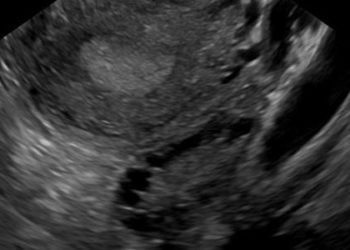Variant gene associated with endometriosis-related infertility
1. A normal variant of a gene responsible for cell-cell adhesionwas associated with primary infertility in northern Chinese women with ovarian endometriosis.
Evidence Rating Level: 3 (Average)
Study Rundown: Endometriosis, a disease characterized by the presence of endometrial tissue outside the uterine cavity, is seen in 5-10% of reproductive age women and an estimated 25-50% of women with infertility. While the association between endometriosis and infertility is widely accepted, the mechanism remains unclear. There is evidence to suggest that the same genetic mutations that allow the endometrium to implant outside the uterus may also lead to failure of the embryo to implant. E-cadherin is a protein that is important in cell-to-cell adhesion and some researchers believe that decreased expression of E-cadherin could be responsible for endometriosis. With this in mind, the authors of the present work set out to determine if certain normal genetic variations in the regulator regions of the E-cadherin gene may also be responsible for endometriosis-associated infertility.
Researchers found that one normal variant of E-cadherin was significantly associated with infertility in women with ovarian endometriosis. Additionally, they noted that eight of the 17 areas of genetic variation that were discovered to be potential targets were located in the 3’UTR region of the gene, an area important for gene expression. This is the first study to look at genetic variation in E-cadherin and endometriosis-related infertility. The generalizability of results are significantly limited by the homogenous nature of the patient population—all women in northern Chinese. Given the one-child family planning policy in China, researchers were unable to assess for a relationship with secondary infertility. Future prospective cohort studies comparing rates of infertility in endometriosis patients with and without this genetic variation would clarify the role of E-cadherin as a molecular marker for infertility in patients with ovarian endometriosis.
Click to read the study in Fertility & Sterility
In-Depth [case-control study]: Researchers compared patients with histologically confirmed diagnosis of ovarian endometriosis (n=589) with matched controls (n=589). Of those with ovarian endometriosis, 127 had primary infertility and 462 did not. Small Nucleotide Polymorphisms (SNPs) in the promoter region, exon, and 3’ UTR of E-cadherin were identified by direct sequencing and polymerase chain reaction (PCR) from blood samples of women with endometriosis, six of which were genotyped using a polymerase chain reaction/ligase detection reaction method.
Among women with endometriosis, those with infertility were more likely to be homozygous for the C-allele of the rs8049282 SNP (OR=2.54, p=0.001). Women with endometriosis and infertility were also more likely to have the CC genotype compared to women with a history of fertility (OR=2.70, p=0.002).
More from this author: Contained morcellation for benign gynecologic surgeries feasible, minimize surgical risk, Oocyte vitrification not associated with adverse obstetric or perinatal outcomes, IUD contraception equally safe in teenagers as in older women, No-cost contraception reduces unintended pregnancy rates, 20% lifetime risk of pelvic floor surgery in women
Image: PD
©2012-2014 2minutemedicine.com. All rights reserved. No works may be reproduced without expressed written consent from 2minutemedicine.com. Disclaimer: We present factual information directly from peer reviewed medical journals. No post should be construed as medical advice and is not intended as such by the authors, editors, staff or by 2minutemedicine.com. PLEASE SEE A HEALTHCARE PROVIDER IN YOUR AREA IF YOU SEEK MEDICAL ADVICE OF ANY SORT.







